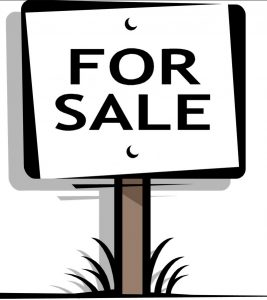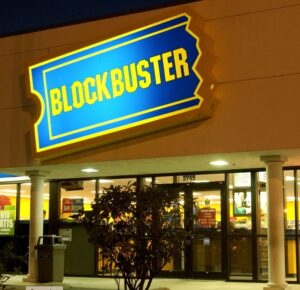Selling a Business: Strategic Buyers
30 December 2024: Selling a Business: Strategic Buyers
An oldie but a goodie.
There’s been a lot of discussion recently in The Brokers Roundtable℠ about strategic buyers and the fact that we’re receiving more and more inquiries from such buyers looking for opportunities to acquire businesses. (See “Businesses We’re Looking For…” in The Brokers Roundtable℠.) The following is post, from mid-2022, is an end-of-the-year discussion on the topic that we thought would be useful to any business owner, broker or real estate agent for a better understanding of strategic buyers; their objectives, what they look for an what to expect when dealing with them.
We wish you all a happy and healthy 2025!
If you’re a business owner selling a business – or a business broker representing a business for sale – you’ve got to know who your buyers likely are.
 Unlike residential real estate, you can’t just hang a “for sale” sign in front of the business you’re trying to sell and hope somebody’s going to wander by and say, “Man, I just gotta have that!”
Unlike residential real estate, you can’t just hang a “for sale” sign in front of the business you’re trying to sell and hope somebody’s going to wander by and say, “Man, I just gotta have that!”
Putting a “for sale” sign on the door is just as idiotic as listing the business with a real estate agent who’ll put the business in the local multiple listing system for all to see – and where no one in the history of the world has ever gone to find a business to buy.
Successfully selling a business requires, among several other things, finding buyers. And finding buyers requires that you have some idea who the buyers of the particular business in question are likely to be and where they are.
Types of Buyers
As we’ve written before, there are two general categories of buyers: financial and strategic.
As the term implies, financial buyers are most concerned about the answer to the question, “How much will this business put in my pocket every year?” Financial buyers are often – but not always – buying in the Main Street Market and sometimes in the lower Middle Market. Financial buyers – or at least the smart ones – buy with an exit plan in mind. They expect to hold the business for a certain period of time – for example, five to 10 years in the case of private equity groups (PEGs) – with a plan to sell the business and pocket or reinvest their gain.
Strategic buyers, on the other hand, generally ask different questions and those questions tend to be about how the acquisition of a particular business will fit into their growth and integration strategy. Hence, the term “strategic”.
Some buyers are in both camps
__________________________________________________________________________________
We offer a comprehensive coaching program – both group coaching in our Brokers’ Roundtable℠ community as well as one-on-one coaching – tailored to Realtors, business owners , buyers and anyone interested in valuing, buying or selling a business.
To learn more, check out Resources in The Brokers Roundtable℠
___________________________________________________________________________________
And some businesses can be targets of both buyers.
For example, for the past 12 months, we’ve been receiving an inordinate volume of inquires from buyers looking for businesses in “the trades”; plumbing, electrical, HVAC and landscaping contractors. These are all logical targets of for both financial as well as strategic buyers.
But this post is about strategic buyers.
Strategic Buyers
 Strategic buyers are often larger companies in the same industry as the businesses they target. In fact, they’re sometimes referred to as corporate or industry buyers. They generally look for acquisitions within their general area of expertise but that offer opportunities to scale.
Strategic buyers are often larger companies in the same industry as the businesses they target. In fact, they’re sometimes referred to as corporate or industry buyers. They generally look for acquisitions within their general area of expertise but that offer opportunities to scale.
For example, a large HVAC company might be interested in a smaller one in a neighboring city to expand its geographic footprint. The larger company might also be interested in the target company’s customer list or offering a product line that the target company has exclusive distribution rights to.
_____________________________________________________________________________________
REALTORS! Our course, “Learn How to Value and SUCCESSFULLY Sell Businesses“, teaches you how to accurately value and successfully sell businesses.
Don’t Miss Out on the Coming “Silver Tsunami”!
One of our clients was a wholesaler/distributor that bought raw goods in bulk, repackaged those goods for retail and sold the repackaged products to retailers and other distributors. One of their accounts were the roughly 40 Walmarts in a three-state area. This client was a target of both financial and strategic buyers.
The financial buyers included a couple of small private equity groups as well as individual investors. The strategic buyers included larger companies that sold to Walmart as well as a couple of larger businesses in the client’s industry.
The Current Market
As just mentioned, we’re currently seeing a significant amount of interest in construction-related industries. But interestingly, most buyers are not looking for businesses focused on new construction but, rather, businesses that provide service to their industry’s clients.
For example, an HVAC company or landscaping contractor that handles commercial accounts are businesses with steady, repeat customers. This repeat business is what’s in highest demand.
And, remember our discussion of roll ups.
 Roll-ups are the strategy of one or more investors, focused on one specific industry, buying up as many of the small businesses in that industry as quickly as possible with the goal of converting each of the acquired businesses into an unit of a new brand created by the investor. Wayne Huizenga did just that with trash haulers in the late 1970s and video stores in the late 1980s.
Roll-ups are the strategy of one or more investors, focused on one specific industry, buying up as many of the small businesses in that industry as quickly as possible with the goal of converting each of the acquired businesses into an unit of a new brand created by the investor. Wayne Huizenga did just that with trash haulers in the late 1970s and video stores in the late 1980s.
It’s a general belief in our industry that strategic buyers, because they are less focused on the target business’ current financials, can justify paying more for a business than financial buyers can for that same business. The perceived synergies of the acquisition generally outweigh the current financial results.
For example, imagine representing a “mom and pop” real estate business. Given the recent real estate market, that business might generate a couple of million dollars in gross commission income. There would certainly be financial buyers, possibly even in the business’ current roster of agents. But from Coldwell Banker and ReMax to Long and Foster, Century 21 and Keller/Williams, there are a dozen or more large real estate companies that would probably pay more than a financial buyer for that business.
I’d start with that group.
The Bottom Line
Strategic buyers are generally looking for a way to drive growth. But strategic buyers may not even consider themselves as such.
For example, if you’re trying to sell an accounting firm, the logical buyer is another accounting firm – and that’s where I’d start my search. The acquisition may not be considered strategic by either of the parties but by increasing the geographic coverage of the acquiring firm and acquiring thet firm’s employees, clients and infrastructure, the result is essentially the same.
Have you got a lawn care business with 150 accounts for sale? How about a commercial roofing company or retail tire business?
Yes, there are financial buyers out there for those businesses but they’re not obvious. You have to market the business your selling and hope that a couple of those financial buyers see your marketing.
Strategic buyers on the other hand are easy to identify and contact. And strategic buyers offer the added benefit of making maintaining confidentiality a lot easier.
If you have any questions or comments on this topic – or any topic related to business – I’d like to hear from you. Put them in the comments box below. Start the conversation and I’ll get back to you with answers or my own comments. If I get enough on one topic, I’ll address them in a future post or podcast.
I’ll be back with you again next Monday. In the meantime, I hope you have a safe and profitable week.
Joe
Searching For…
A NOTE TO READERS: Our “Searching For…” feature has been moved to our online support platform, The Brokers Roundtable℠. It will appear there exclusively.

#business #businessacquisition #sellabusiness #becomeabusinessbroker #businessbrokering #businessvaluation #MergersandAcquisitions #buyabusiness #sellabusiness #realtor #realestateagents
The author is the founder, in 2001, of Worldwide Business Brokers and holds a certification from the International Business Brokers Association (IBBA) as a Certified Business Intermediary (CBI) of which there are fewer than 1,000 in the world. He can be reached at jo*@*******************og.com

